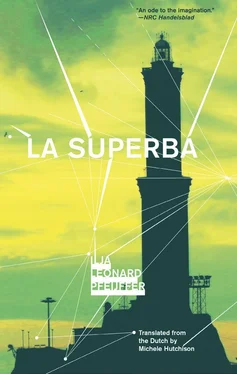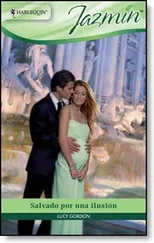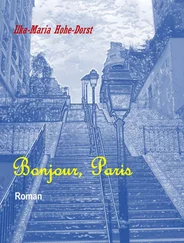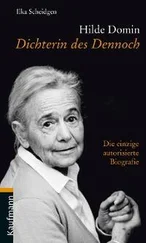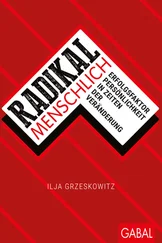Later that day I ran into Cinzia. We had an aperitif in the Bar of Mirrors. I asked her whether she knew the theater. She shook her head. There you go, I thought, the current owners are charlatans. People don’t even know the theater exists. We’d be sure to be much better at that. I described the place at length and told Cinzia about our plans. She listened attentively. I also said that all of this information was highly confidential, obviously; I don’t know why, but it sounded kind of professional. She nodded. She wouldn’t say a single word to anybody.
“The only thing that worries me is the investment. I’m hesitant to get into debt for this.”
“What you need,” Cinzia said, “is a rich mistress.”
I found that hilarious. But she wasn’t laughing.
8.
The theater was closed. We rang the bell. No answer. We looked through the window. It was dark inside. Our appointment was at three, wasn’t it? It was already a quarter past. We rang again. Nobody. The door was padlocked on the outside, so there was no way there was anyone inside. We waited. In the meantime, Walter tried to telephone to confirm that our appointment was at three o’clock. No one picked up. We decided to wait a bit longer. And just as we were about to give up and leave, he showed up. It was almost four.
“Where did you get to? I was inside. I’ve been waiting for you for an hour. Did you ring the bell? Then I didn’t hear it. No, and my telephone doesn’t have any signal inside. I was just about to leave in fact. But fine. I’m glad I finally found you.”
“But how did you get in?” Walter asked. “The door’s padlocked. When we saw that, we stopped ringing the bell.”
“That’s why? But I went in through the back entrance.”
“There’s a back entrance? I had no idea. Can we see it?”
“Another time. Come.”
His name was Pierluigi Parodi. He was one of the two owners, and rather young for a theater director — somewhere in his late twenties, I guessed. He was a textbook case of what they call a fighetto in Italian — someone who acts the handsome young man and is the first to believe he’s a handsome young man. He had clearly spent much of his life in front of the bathroom window. Blow-drying such a studiously nonchalant coiffure and trimming that ostensibly unkempt goatee would take hours. He wore expensive designer clothes and box-fresh sneakers, and naturally he had Ray Bans perched on top of his head. He was a poor little rich kid and went to no trouble to hide it. His manner of speech and his gestures also betrayed the mentality of a person who considered himself privileged and superior because everything always landed on his lap. He was terribly smug.
“Shall we sit down outside here? It’s hot.”
“It’s cooler inside,” Pierluigi said. “And we don’t want the neighbors eavesdropping. You’re too trusting, you foreigners. Lesson one in doing business in Italy — what you don’t know doesn’t hurt you. The fewer ears that hear, the fewer eyes that see, the more chance of earning money. So. Now you know that. Nothing is free, but Pierluigi is giving you this important lesson for absolutely nothing.” He laughed.
We went upstairs to the bar. He turned on the coffee machine and made three espressos. He placed a large heavy marble ashtray on the table, got a wooden box out from behind the bar, and offered us cigars. He took one himself, sat down at the head of the table, leaned back, and looked at us with a smile.
“It’s actually very straightforward,” he said. “The asking price is two forty. Half of that can be paid in installments — we’d have to figure out interest, of course. But that’s a simple sum. And then we’d have to talk about the takeover costs for the furnishings and fittings: the lights, the sound system, furniture, restaurant crockery and cutlery, kitchen equipment, coffee machine, ice machine, terrace heating, that kind of thing. We’d have to make an inventory of all that, at the end, then you’d decide what you wanted to take and you’d make an offer. We can come to an arrangement. Well?”
“Two forty?”
“Two hundred and forty thousand euros. I can’t go any lower than that, I’m sorry. That’s an absolute rock-bottom price. Just think. Do you know what an apartment around here costs? You don’t know because you’re foreigners. But I’ll tell you because I’m honest. You’ll pay three times that for just a hole in the wall. And what we have here is a blooming, profitable theater with catering facilities. Don’t ask me to lower the price. We’re friends. Don’t embarrass me.”
“Why do you want to sell it, Pierluigi?”
“I’m sitting pretty, here. I don’t want to sell it at all. I mean, I’m not in a hurry. It’s a personal favor. I like you two. I trust you. You want a theater, and I happen to have one. In any case, I wanted to venture out and expand my business. Import and export. I have an extensive network abroad. Do you know that the greater part of what Italy produces goes abroad? You didn’t know because you’re not Italians. But those are the facts. And you have to know the facts in Italy if you want to do business.”
The situation seemed clear to me. As Pierluigi had correctly stated, it was all about the facts. And the most important fact was that I didn’t see a single way that I could cough up the asking price, not even in installments, and let’s not even mention the additional costs. The adventure ended there as far as I was concerned. But because we hadn’t finished the cigars, I decided to ask something else, out of curiosity. “Pierlugi,” I began, “could you perhaps give us an indication of the monthly costs?”
He made a dismissive gesture. “That’s a stupid question,” he said. “Electricity is the only expense. Because of the lights. But that’s up to you. I’ve always been able to keep it to a minimum. I mean, a bit less light in a play only makes it more atmospheric. I can show you the bills. Gas and water are normal. And apart from that the rent is extremely low.”
“The council rent?”
“Less than seven hundred a month. A pittance. That’s their form of cultural subsidy.”
“But why should you pay rent on a building you own?”
“You’re foreigners. But let me explain. That’s the way it works in Italy. There’s a nine-year license. But you don’t have to worry about that, it’ll be extended automatically.”
“But the building is officially owned by the council?”
“That’s not the way you should look at it.”
“How then?”
“Two twenty. I can’t go any lower than that.”
9.
We held a crisis meeting in La Lepre, a hip, successful bar just a stone’s throw from the theater. The bar was named after the minuscule square in front of it where there was enough room for an intimate terrace. It is one of the best-hidden oases in one of the darkest parts of the labyrinth, between the church of Santa Maria delle Vigne and Via della Maddalena. Not long after I’d arrived in Genoa, I happened upon it one evening. Although I’d actively tried to find the square, I couldn’t find it again for a month, when I chanced upon it for a second time.
Walter knew the owners, or in any case, one of them — Raimondo, an energetic young manager who had made it into a success in a short space of time, together with his companion. Since Walter knew him, we were given a discount. And later in the evening, it might be interesting to exchange thoughts with him, if the opportunity arose. In terms of the catering industry, he’d be our neighbor, after all. There might be a possibility to work together in some way. Everything was about the right connections, at the end of the day — that much we’d learned, even if was just through the discount on our drinks bill.
Читать дальше
